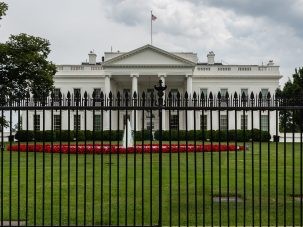As of Today, the U.S. Is No Longer Part of the Paris Agreement
Whether or not we rejoin — and thereby do our part to prevent the worst impacts of climate change — depends on the outcome of the election.

In a world where the effects of climate change pervade every aspect of our society, from the socio-economic to the humanitarian and ethical, the elections for the presidency of the United States have enormous value for the future of our planet.
The role of the tenant of the White House is, in fact, increasingly important. The president influences economic stimuli and incentives for the development of new technologies that reduce emissions and capture carbon dioxide from the atmosphere. He or she also determines the role that the United States will play in coordinating international collaborative actions — without which the efforts of individual countries are in vain — that are necessary to slow down global warming.
One such international effort is the Paris Agreement. Signed in 2015 by 195 countries, the agreement aims to limit the increase in the global average temperature to 1.5°C above the pre-industrial average, in order to reduce the risks and impacts associated with climate change. Under the agreement, former president Barack Obama committed the U.S. to reducing its greenhouse gas emissions from 26% to 28% compared to 2005 levels by 2025. It is unlikely that this goal will be achieved, however, even if the reduction in emissions has been 15% so far. Since his election, Trump has sought to unhinge and destroy what Obama tried to build, favoring the powerful fossil fuel giants. In 2017, shortly after being elected, Trump announced the U.S.’s withdrawal from the Paris Agreement. Under the terms of the agreement, signatory nations had to wait at least four years from the effective date of the agreement, 4 November 2016, before being able to leave the agreement. That makes today, 5 November 2020, the first day on which the United States are no longer part of the Paris Agreement.
The reverberation of this action is ubiquitous and will impact not only on the United States itself, but also other countries, through the reduction of financial aid to the climate fund and the impact on climate change research, slowing the pace toward achieving the agreement’s objectives. Furthermore, the U.S. exit from the agreement will have a strong influence on carbon dioxide emissions and the price of carbon.
As of this writing, there are still no official statements on who will be the next president of the United States, although Biden has a serious chance at the presidency. It is impossible to conceive of a future in the hypothesis of a Trump victory — it would be like imagining a forest after the explosion of thousands of bombs and trying to rebuild trees from the fragments, because this would be equivalent to having Trump as president in the United States for another four years, from a climate point of view.
Biden’s election, if confirmed, could get the nation back on track, given the U.S.’s role as the second largest greenhouse gas emitter in the world. Instead of creating agreements with the oil and fossil fuel lobbies like his predecessor, Biden would likely focus on the development of new technologies for the production and distribution of “alternative” energy, proposing incentives and tax relief, supported by an ever-growing share of young Americans who invest in “green” financial packages and whose liquidity is stimulating the market for companies that rely on renewables.
Among Biden’s plans, of course, is to re-enter the Paris Agreement with full sail. For bureaucratic reasons, the formal return can only take place 30 days after Biden has notified the United Nations in writing of his intention, designating the date of February 19, one month after the inauguration, as the first day when the United States could be officially readmitted into the agreement.
I can only hope that Biden, should he be elected, will keep at least part of the promises he made during the election campaign, and that the winds guiding U.S. climate policy will soon change for the better.
Marco Tedesco is a research professor at Columbia University’s Lamont-Doherty Earth Observatory.
